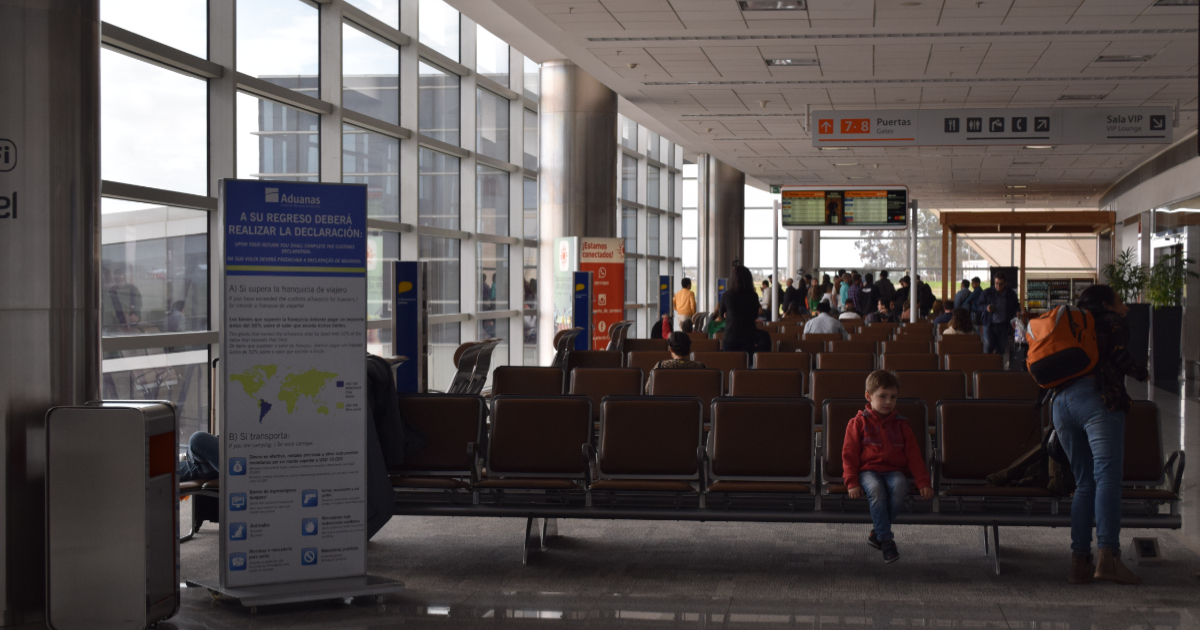Over 20,000 Cubans residing in the Republic of Uruguay who are eligible to obtain citizenship there will receive a passport that, in practice, does not significantly improve their mobility. Despite holding an Uruguayan passport, they still face substantial challenges in obtaining visas and traveling to numerous countries.
The Uruguayan Constitution, in Article 73, differentiates between "legal" and "natural" citizens. This distinction imposes mobility restrictions on migrants who acquire Uruguayan citizenship. The primary obstacle lies in the passport issued to legal citizens, which still indicates their country of origin, even in cases where migrants have lost their original nationality due to laws prohibiting dual citizenship.
The situation is exacerbated by a 2015 regulation from the International Civil Aviation Organization that requires electronic issuance of passports. For these migrants, the electronic record reflects their nationality of origin, not their Uruguayan citizenship.
The NGO Todos Somos Uruguayos has gone further in its demands, calling for an end to the travel restrictions faced by legal citizens. Even if they manage to bypass the passport barriers, they lack diplomatic protection and are labeled as "foreigners" during their return process to Uruguay.
The issue was brought before the Inter-American Commission on Human Rights (IACHR), which summoned the Uruguayan government in early March 2024 during its 189th Regular Session. As a result, Uruguay committed to meeting its international obligations and expressed willingness to continue dialogue on nationality and legal citizenship rights. Specifically, a meeting between the Ministry of the Interior and the Ministry of Foreign Affairs was announced to discuss removing the reference to nationality from the passports.
However, just days after the hearing, Alejandro and Luis, a Cuban couple with Uruguayan passports, had their vacation plans disrupted when one of them was denied boarding a flight to Colombia, a visa-free destination for Uruguayan citizens. “When my passport was scanned, it flagged my original nationality, and I was not allowed to board. I tried contacting Colombian Immigration via email, but they didn't respond in time, preventing me from traveling with my partner, who holds Spanish citizenship. A day later, Colombian immigration officials granted me special permission to travel, but by then, my vacation was ruined, and I had a terrible experience,” Alejandro said.
Alejandro and Luis's case is not isolated. Jorge Valdés, secretary and founder of the NGO Cubanos Libres en Uruguay, confirmed the widespread concern within the Cuban community about this citizenship policy: “Uruguay stopped being a transit country for Cuban migrants long ago. Although the 2023 census reported around 12,000 Cubans, we believe the real number could be three times higher. Most cases are families who integrate organically into Uruguayan society and aspire to citizenship once they meet the requirements. The current policy deprives the Cuban diaspora with legal Uruguayan citizenship of the mobility rights enjoyed by natural citizens, which is particularly serious given the visa restrictions on Cuban passports.”
Desireé Pagliarini, a national deputy from the Colorado Party and a proponent of a bill to remove the reference to the country of origin from travel documents, confirmed the issue's complexity: “It's a constitutional matter, and thus the solution must also be of that magnitude. To grant Uruguayan nationality to legal citizens, a constitutional reform is required, and the people would need to vote in a referendum. Currently, it's not on the public agenda or even in the electoral campaign. However, the government is focusing on the migration issue to find a practical solution regarding passport issuance.”
For Cubans, this is not a minor issue; the Cuban passport is among the most restricted globally and the second lowest-ranked in Latin America, only ahead of Haiti, according to the Global Passport Ranking by the British firm Henley & Partners. This contrasts sharply with the Uruguayan passport, ranked 22nd globally with 156 visa-free destinations, making it the fourth most powerful in the region.
Uruguay has become a preferred destination for Cubans due to its immigration benefits and proximity to Guyana, which exempts Cubans from visa requirements. In the past year alone, 7,293 of the 9,129 people who sought asylum in Uruguay were Cubans, according to a report accessed by the local media outlet El Observador.
The influx of migrants has overwhelmed the asylum system, which now has over 24,000 pending cases, mostly involving Cubans and Venezuelans, as acknowledged by the Uruguayan Ministry of Foreign Affairs. The 2023 census revealed that without the foreign population, Uruguay's total population would be below the 2011 census level, highlighting the importance of amending legislation that affects the only growing demographic segment in the country.
Key Issues Around Uruguayan Passports for Cuban Migrants
This section addresses frequently asked questions about the challenges faced by Cuban migrants in Uruguay concerning their Uruguayan passports and mobility rights.
Why do Uruguayan passports for Cuban migrants still show their original nationality?
The Uruguayan Constitution distinguishes between "legal" and "natural" citizens, and the passports issued to legal citizens indicate their country of origin. This is further complicated by a 2015 regulation requiring electronic passport issuance, which records the original nationality.
What actions are being taken to address this issue?
The issue was brought to the Inter-American Commission on Human Rights, leading to a commitment from Uruguay to meet international obligations. Meetings between the Ministry of the Interior and the Ministry of Foreign Affairs are planned to discuss removing nationality references from passports.
How does this issue impact Cuban migrants' travel plans?
Cuban migrants with Uruguayan passports face significant travel restrictions because their passports still indicate their original nationality. This can lead to denied boarding on flights to visa-free destinations for Uruguayan citizens, as seen in the case of Alejandro and Luis.
What is the stance of the Uruguayan government on this issue?
While the issue is not currently on the public agenda or in electoral campaigns, the government is focusing on finding a practical solution to the passport issuance problem, despite the need for a constitutional amendment for a permanent fix.
